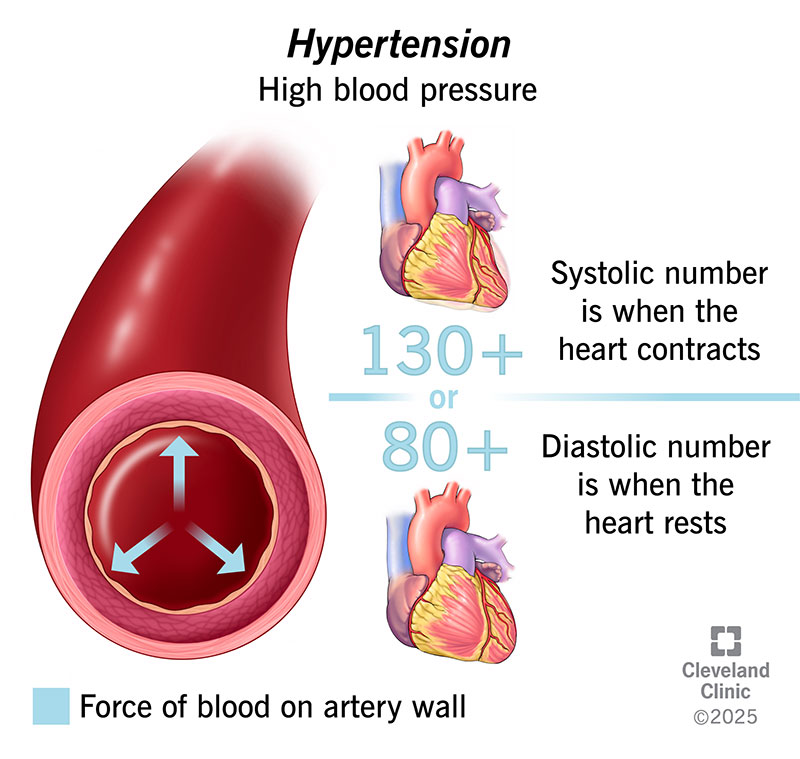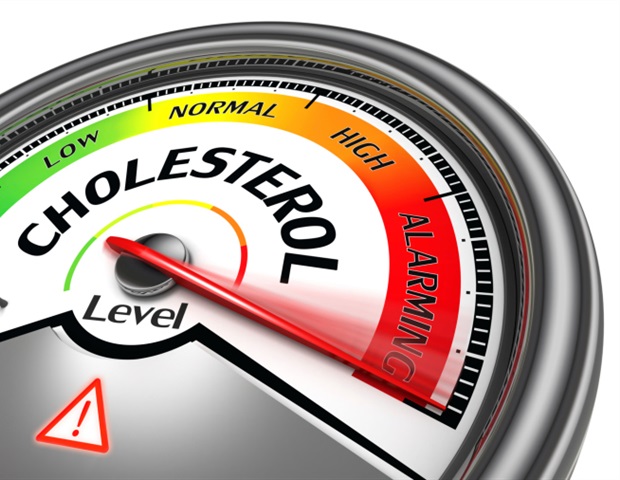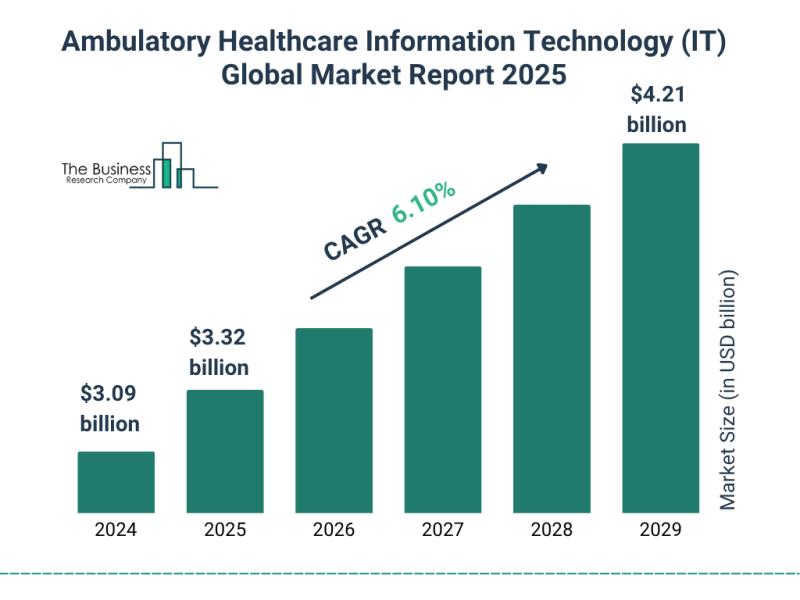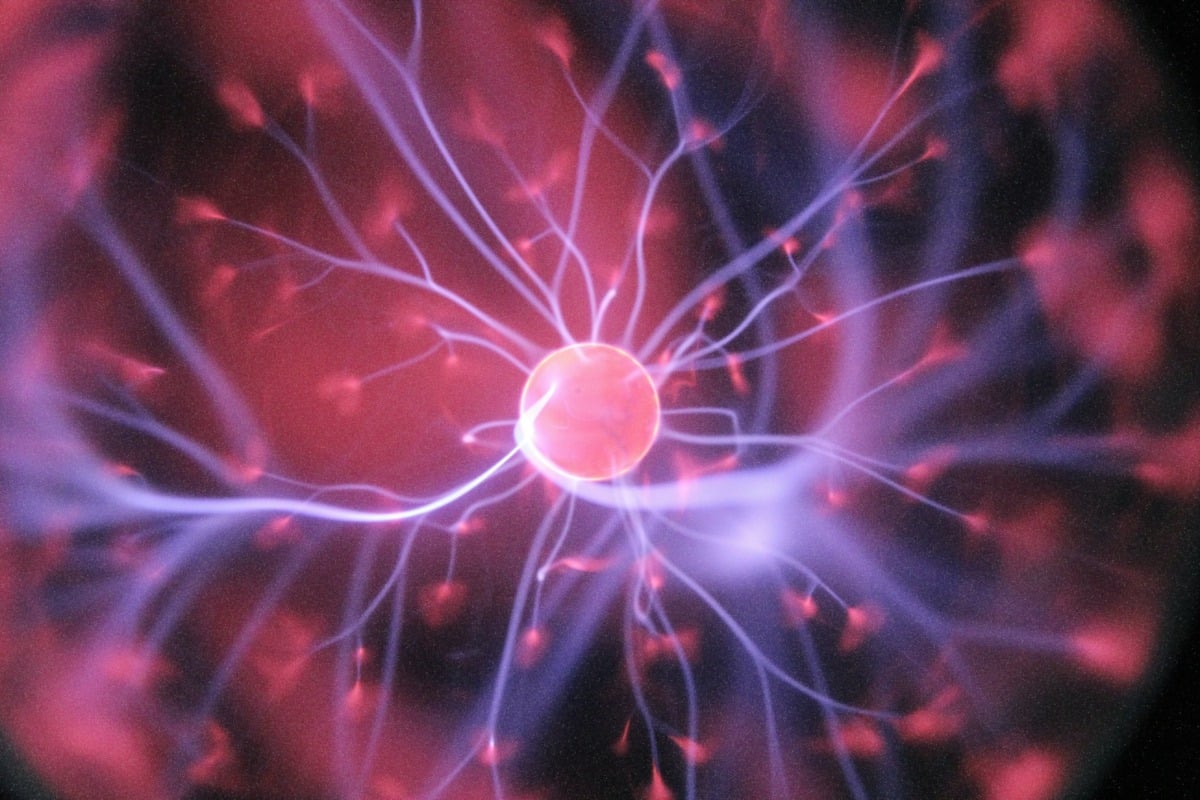High Blood Pressure: Symptoms & Causes

What is high blood pressure?
High blood pressure is when the force of blood pushing against your artery walls is consistently too high. This damages your arteries over time and can lead to serious complications like heart attack and stroke. “Hypertension” is another word for this common condition.
Healthcare providers call high blood pressure a “silent killer” because you usually don’t have any symptoms. So, you may not be aware that anything is wrong, but the damage is still occurring within your body.
Blood pressure (BP) is the measurement of the pressure or force of blood pushing against blood vessel walls. Your BP reading has two numbers:
- The top number is the systolic blood pressure, which measures the pressure on your artery walls when your heart beats or contracts.
- The bottom number is the diastolic blood pressure. This measures the pressure on your artery walls between beats when your heart is relaxing.
Healthcare providers measure blood pressure in millimeters of mercury (mmHg).
How do I know if I have high blood pressure?
Getting your blood pressure checked is the only way to know if it’s too high. You can do this by seeing a healthcare provider for a yearly checkup, even if you feel healthy. You won’t feel sick if you have high blood pressure. So, these checkups are crucial and can be life-saving. If your BP is above the normal range, your provider will recommend lifestyle changes and/or medications to lower your numbers.
What is considered high blood pressure?
Definitions of high blood pressure vary slightly depending on where you live. In the U.S., healthcare providers define high blood pressure (hypertension) as:
- A top number (systolic blood pressure) of at least 130 mmHg, and/or
- A bottom number (diastolic blood pressure) of at least 80 mmHg.
In Europe, healthcare providers define hypertension as:
- A top number of at least 140 mmHg, and/or
- A bottom number of at least 90 mmHg.
How common is high blood pressure?
High blood pressure is very common. It affects 47% of adults in the U.S. This equals about 116 million people. Of those, 37 million have a blood pressure of at least 140/90 mmHg.
High blood pressure caused or contributed to over 670,000 deaths in the U.S. in 2020.
The World Health Organization estimates that globally, over 1.2 billion people ages 30 to 79 have hypertension. About 2 in 3 of those individuals live in low- or middle-income countries.
link








